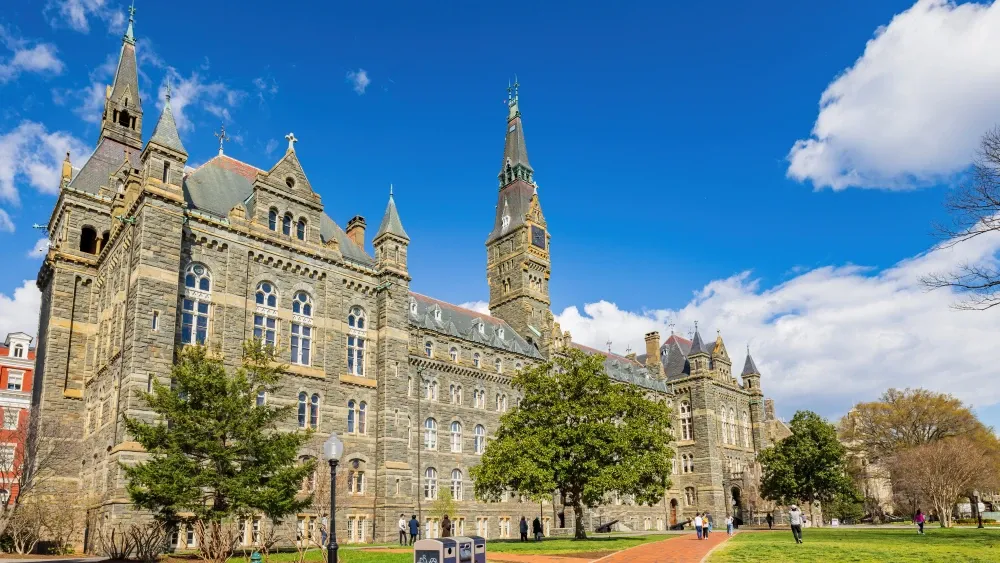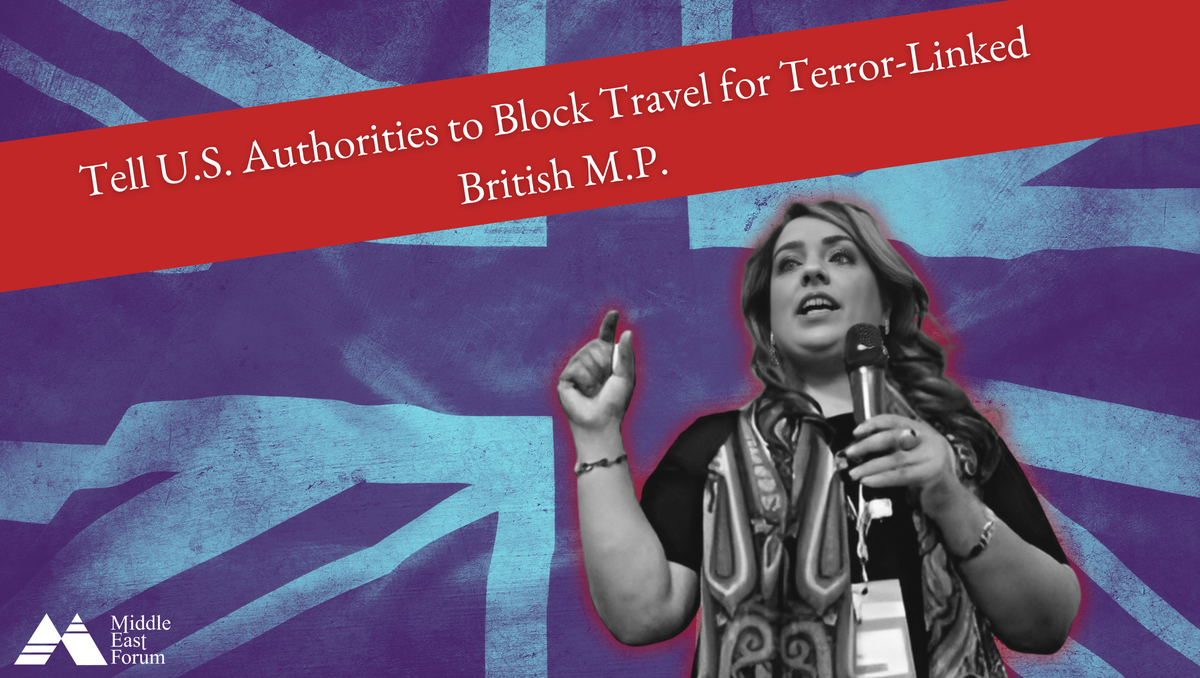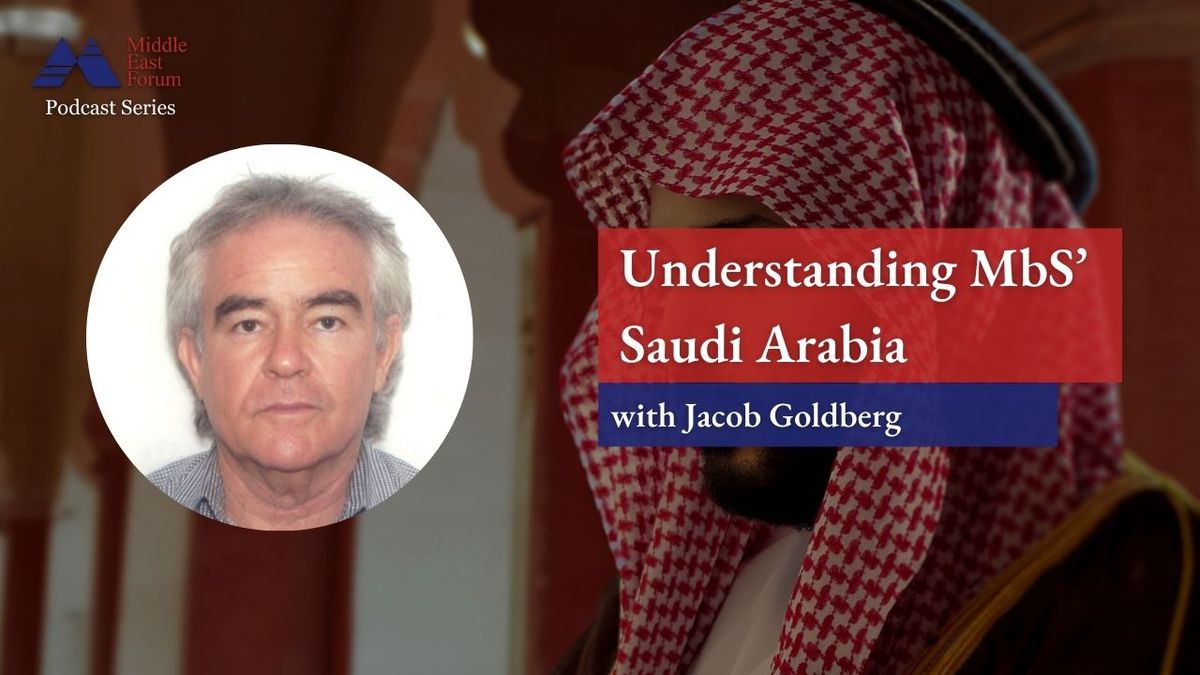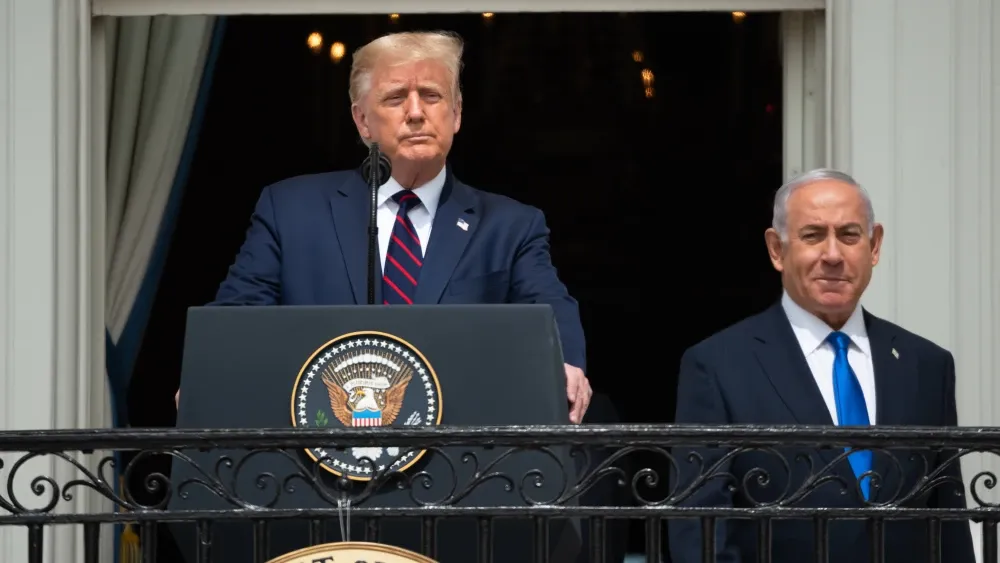| ||
 | ||
| Naz Shah Goes to Washington, Riyadh's Shifting Sands, and Trump's Return to Office By Winfield Myers ● Nov 11, 2024 Smart Brevity® count: 5.5 mins...1427 words Today’s MEF Dispatch includes an MEF Action Alert urging the United States to block British Member of Parliament (MP) Naseem (Naz) Shah from entering the country this week because of her links to designated terrorist organizations, as detailed by Rep. Brian Mast (R-FL), who cited Shah’s terrorist ties in a letter urging Secretary of State Antony Blinken to revoke Shah’s travel privileges. Readers are encouraged to join Rep. Mast by signing up for our MEF Action campaign to tell U.S. authorities to prevent Shah from attending a November 13 Washington, D.C., conference hosted by a prominent American Islamist organization. Shah has a history of associating with organizations with ties to Hamas and other similar groups. In the Middle East, we contend that Donald Trump’s return to the White House should spur Saudi Arabia to end their soft approach to the Houthi terrorists and return to the goal of defeating them. This move is important because, as we note, Saudi Crown Prince Mohammed bin Salman has shown that he responds to American actions that affect Saudi Arabia. We also examine the implications of the relationship between Israeli Prime Minister Netanyahu and President-elect Trump, the sad condition of Christians in Egypt, and more. | ||
Terror Links Could Derail British Member of Parliament’s Visit to U.S.A British MP’s planned visit to the U.S. faces scrutiny over her connections to Hamas-linked charities. Why it matters: Allowing entry to politicians like Naz Shah with ties to terrorist organizations undermines U.S. security policies and public trust.
Driving the news: Rep. Brian Mast (R-FL) is leading efforts to bar Shah from entering the U.S., citing substantial evidence of her links to Hamas-affiliated NGOs.
Background: Shah has faced previous controversies, including suspension from the Labour Party for antisemitic remarks and associations with controversial organizations.
| ||
MEF Action Alert: Tell U.S. Authorities to Stop British MP Naseem Shah from Traveling to the United StatesNaseem "Naz" Shah, a British Member of Parliament, is scheduled to attend a conference in the United States on November 13, 2024. Concerned about her extremist statements and terrorist links, U.S. Rep. Brian Mast (R-FL) sent a letter this week to Secretary of State Antony Blinken asking him to revoke Shah's travel privileges. By signing up, you can join Congressman Mast by sending pre-written letters to the U.S. State Department and U.S. Citizenship and Immigration Services. Your emails will urge U.S. officials to rescind Shah’s travel privileges due to her extreme affiliations and offensive remarks. Tell consulate officials that Shah’s visit could promote division and instability during a period of rising global tensions and increased hate crimes aimed at Jews and Israelis. Why This Matters: Shah, a British Labour MP, has been linked to organizations and individuals associated with controversial ideologies:
Take Action Now: Signing up and sending your emails takes only a moment, yet your participation can significantly impact the decision-making process regarding Shah’s visit. The more voices that join this call to action, the stronger our message becomes. Use social media, texts, and emails to raise awareness about why it's crucial to prevent individuals with such affiliations from influencing American audiences. | ||
With Trump Returning, Saudi Arabia Should Stop Appeasing the HouthisThe Kingdom’s softened approach to the Houthi rebels is under scrutiny as Trump returns to the political stage. Why it matters: Saudi Arabia’s muted strategy toward the Houthis could affect the security of the Kingdom while inadvertently enabling Iranian aggression.
Saudi Arabia’s cautious diplomacy: Riyadh has stopped seeking to defeat the Houthis, focusing instead on maintaining quiet at its southern border.
Trump’s potential influence: The return of Trump could signal a shift in U.S. support for Saudi Arabia, encouraging a more assertive stance against the Houthis and Iran.
| ||
WATCH: Jacob Goldberg on Understanding Mohammed bin Salman’s Saudi ArabiaSaudi Crown Prince Mohammed bin Salman’s recent policy shifts reveal a pragmatic approach to global politics. Why it matters: MbS’s evolving strategy could redefine the balance of power and regional alliances in the Middle East.
Breaking with tradition: MbS has sidelined the traditional Saudi ruling dynamics, focusing on individual leadership and economic diversification.
Reevaluating foreign alliances: Recent geopolitical moves, including consideration of joining BRICS, reflect Saudi Arabia’s strategic hedging.
| ||
Egypt Shows Contempt for Christians by Forcing Coptic Funerals into Streets and AlleywaysCoptic funerals in Egypt are forced into public spaces due to government restrictions on churches. Why it matters: The forced outdoor ceremonies demonstrate the systemic discrimination Coptic Christians face in Egypt.
Government inaction: Despite promises, Egyptian authorities continue to keep numerous churches closed, citing dubious security threats.
Historical context: The closure of churches and forced public ceremonies have been ongoing issues, with similar incidents reported as far back as 2015.
| ||
Trump and Netanyahu, Newly Empowered, to Reunite; Israel Risks Overplaying Its HandThe re-election of Donald Trump marks a pivotal moment for Israel’s Prime Minister Benjamin Netanyahu. Why it matters: Netanyahu’s strengthened political position could redefine U.S.-Israel relations and regional stability.
Biden’s final months: President Biden, in his remaining time, has the opportunity to shape a lasting foreign policy legacy.
Potential pitfalls: While Netanyahu may find a more supportive ally in Trump, he must navigate internal and external pressures tactfully.
| ||
Further Reading:
| ||
| Today’s activist-oriented MEF Dispatch reminds readers that they needn’t be passive in the face of an ongoing Islamist assault on the West. By taking the initiative, we can influence high-profile individuals and organizations to do the right thing. With the incoming administration already influencing foreign actors—be they allies or enemies—stay tuned for upcoming editions of the MEF Dispatch to keep you informed. Sincerely, | ||
| Feedback Please share your thoughts on this edition. Was this edition useful? Your responses are anonymous | ||
| Powered by | ||
| ||









